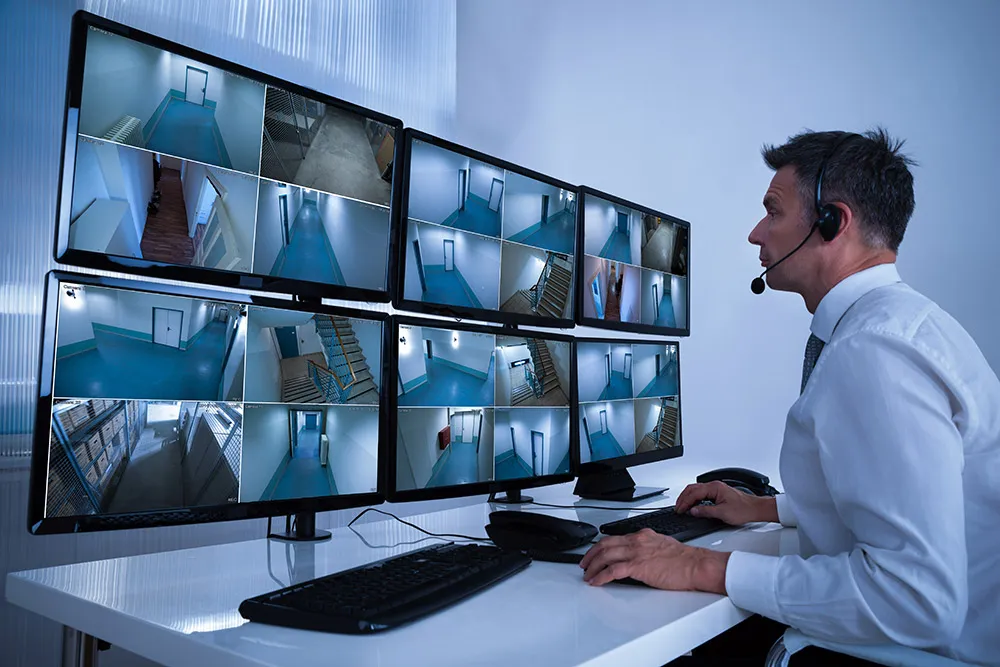Understanding Alarm Monitoring Systems
An alarm monitoring system is an essential component of modern security solutions, designed to enhance safety and provide peace of mind. These systems are not merely about sounding an alarm; they are sophisticated networks that ensure prompt responses to emergencies. By connecting various security devices, such as smoke detectors, motion sensors, and surveillance cameras, alarm monitoring systems create a comprehensive safety net for homes and businesses alike.
At the core of alarm monitoring systems is the ability to relay information to a monitoring centre, which operates 24/7. This constant vigilance means that, in the event of an emergency, help is always just a call away. The integration of technology in alarm monitoring has transformed how individuals and businesses approach security, making it more efficient and reliable. Furthermore, advancements in artificial intelligence and machine learning are beginning to play a role in these systems, allowing for predictive analysis that can identify potential threats before they escalate into emergencies.
The Components of an Alarm Monitoring System
Alarm monitoring systems consist of several key components that work in unison to ensure effective monitoring. These typically include control panels, sensors, and communication devices. The control panel acts as the brain of the system, receiving signals from various sensors and determining the appropriate response.
Sensors play a crucial role in detecting potential threats. For instance, motion detectors can identify intruders, while smoke detectors can alert occupants to fire hazards. Communication devices, such as telephones and internet connections, facilitate the transmission of alerts to the monitoring centre, ensuring that help can be dispatched without delay. Additionally, many modern systems incorporate environmental sensors that can detect changes in temperature or humidity, providing an extra layer of protection against issues such as flooding or extreme weather conditions that could pose risks to property.
How Alarm Monitoring Works
When a sensor is triggered, the control panel receives the signal and immediately sends a notification to the monitoring centre. Trained professionals at the centre assess the situation and determine the necessary action. This could involve contacting emergency services, notifying the property owner, or dispatching security personnel to the location.
The speed and efficiency of this process are critical. In many cases, the response time can mean the difference between a minor incident and a major disaster. Alarm monitoring systems are designed to minimise response times, ensuring that assistance is provided as quickly as possible. Moreover, the use of mobile applications and real-time notifications allows property owners to stay informed about their security status, enabling them to take proactive measures even when they are away from their premises. This level of connectivity and control empowers users, making them active participants in their own security management.
The Importance of Connectivity in Emergencies
In emergencies, connectivity is paramount. An alarm monitoring system ensures that individuals remain connected to emergency services, even when traditional communication methods may fail. This is particularly vital in situations where immediate action is required, such as during a fire, burglary, or medical emergency.
With advancements in technology, many alarm monitoring systems now offer mobile connectivity options. This means that alerts can be sent directly to smartphones or tablets, enabling users to remain informed and in control, even when they are away from their premises. This level of connectivity not only enhances safety but also provides reassurance to users, knowing that they can respond to emergencies promptly.

Real-Time Alerts and Notifications
One of the standout features of modern alarm monitoring systems is the ability to send real-time alerts. Users can receive notifications via text messages, emails, or through dedicated mobile applications. This immediate communication ensures that individuals are aware of any potential threats as they occur, allowing them to take proactive measures.
For instance, if a motion sensor is triggered in a home while the occupants are away, the system can instantly notify them, enabling them to contact the authorities without delay. This capability is invaluable in preventing property damage and ensuring personal safety.
Remote Access and Control
Many alarm monitoring systems now offer remote access features, allowing users to monitor their properties from anywhere in the world. Through secure mobile applications or web portals, users can view live camera feeds, check the status of sensors, and even control alarms remotely.
This level of control is particularly beneficial for business owners who may need to oversee multiple locations. By having the ability to monitor their premises in real-time, they can respond to incidents quickly and effectively, reducing the risk of loss or damage.
Benefits of Alarm Monitoring Systems
The advantages of implementing an alarm monitoring system extend beyond mere security. These systems provide a range of benefits that enhance overall safety and peace of mind for both residential and commercial properties.
Deterrence of Criminal Activity
One of the most significant benefits of alarm monitoring systems is their ability to deter criminal activity. The presence of visible security measures, such as cameras and alarm signage, can discourage potential intruders from targeting a property. Knowing that a property is monitored increases the perceived risk for criminals, making them think twice before attempting a break-in.
Moreover, in the event of an intrusion, the immediate response from the monitoring centre can lead to the apprehension of criminals, further reinforcing the deterrent effect. This proactive approach to security can significantly reduce the likelihood of theft and vandalism.
Enhanced Emergency Response
Alarm monitoring systems streamline the emergency response process. By providing direct communication with emergency services, these systems ensure that help is dispatched quickly and efficiently. This is particularly crucial in life-threatening situations, where every second counts.
Furthermore, trained professionals at monitoring centres can assess the situation and provide vital information to emergency responders, such as the nature of the threat and the location of the incident. This level of coordination enhances the effectiveness of the response, ultimately saving lives and minimising damage.
Insurance Benefits
Investing in an alarm monitoring system can also lead to potential savings on insurance premiums. Many insurance companies offer discounts to policyholders who have monitored security systems in place, recognising the reduced risk associated with such measures. This can result in significant cost savings over time, making alarm monitoring not only a safety investment but also a financially sound decision.
Choosing the Right Alarm Monitoring System
When selecting an alarm monitoring system, it is essential to consider various factors to ensure that the chosen solution meets specific needs. The right system should provide comprehensive coverage, be user-friendly, and offer reliable customer support.
Assessing Security Needs
Every property has unique security requirements. It is vital to assess the specific needs of the premises, including the size of the property, the number of entry points, and any particular vulnerabilities. A thorough risk assessment can help identify the most appropriate sensors and monitoring solutions.

For example, a larger property may require multiple cameras and motion sensors, while a smaller home might be adequately protected with a basic alarm system. Understanding these needs ensures that the system is tailored to provide optimal security.
Researching Providers
Not all alarm monitoring providers offer the same level of service. It is crucial to research different companies, comparing their offerings, customer reviews, and response times. Look for providers with a proven track record of reliability and excellent customer service.
Additionally, consider whether the provider offers 24/7 monitoring and the types of technology they use. A reputable company will be transparent about their services and willing to answer any questions potential customers may have.
Conclusion
In an increasingly unpredictable world, alarm monitoring systems play a vital role in ensuring safety and security. By keeping individuals connected during emergencies and providing rapid response capabilities, these systems offer invaluable peace of mind. The integration of technology has transformed traditional security measures into sophisticated solutions that are accessible and effective.
Investing in an alarm monitoring system is not just about protecting property; it is about safeguarding lives and ensuring that help is always within reach. With the right system in place, individuals and businesses can navigate emergencies with confidence, knowing they are supported by a reliable network of protection.
See also: Upgrading to a back to base security alarm? Here’s what you should know
